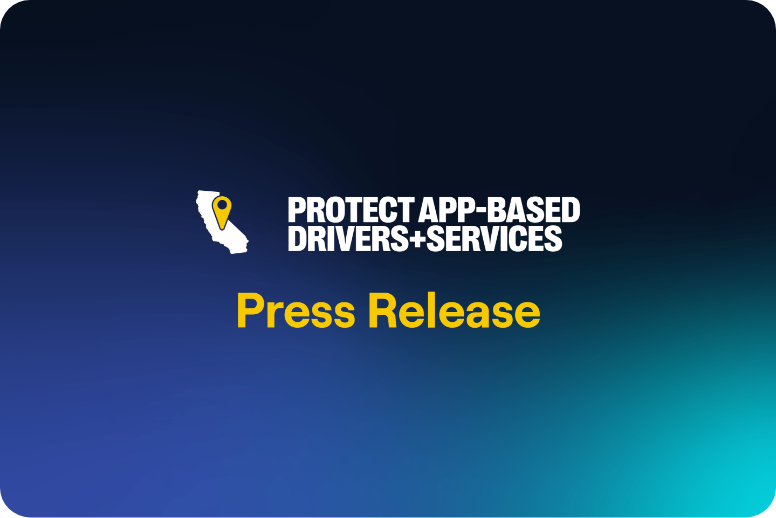By Jim Pyatt
I’m semi-retired and usually drive rideshare part time. Like 80% of on-demand delivery and rideshare drivers, I did this to earn extra income so my wife and I can afford things our retirement savings wouldn’t otherwise provide.
But with the coronavirus forcing people to take refuge in their homes and businesses to shutter, ridesharing has dried up. Thankfully, I quickly signed up to do on-demand food delivery and started earning immediately.
But the ease with which I’ve been able to transition from rideshare to delivery is in jeopardy. Politicians want to make app-based drivers employees, not independent contractors like we are today. This change doesn’t work for me or thousands of other drivers.
With on-demand driving, there is no lengthy job application and hiring process. I downloaded an app and I was off. The availability of delivery driving during the pandemic has been so important to many of us, especially against the backdrop of tens of millions of out-of-work Americans.
App-based delivery drivers are performing an essential service and playing a vital role during this emergency by getting groceries, medicine and supplies, and warm food to people who cannot leave their homes. App-based drivers also helped restaurants with take-out when dining rooms closed.
I know the severity of this crisis because every day I experience a heartwarming moment that underscores how I’m making a difference.
In late April, I picked up a $300 food delivery from a local restaurant and delivered it to the emergency room at Doctors Medical Center in Modesto. When I got to the hospital, 10 or 12 nurses in PPE came out and unloaded the food from my car. Someone named John had the compassion to buy all that food for his fellow workers. It was very moving. He then sent me a $73 tip. I was amazed and honored to have been the one to bring a little joy to a difficult environment.
Like me, a majority of app-based drivers have other jobs or obligations. Some politicians think they are helping us by forcing us to become employees, which drivers have repeatedly said we don’t want. Rigid employment is not the answer for most of us.
The flexibility this style of work provides is the sole reason it works for the vast majority of us. We retain the flexibility to control when we work and we can switch to a different app whenever we want.
Trying to force this into an employment relationship simply wouldn’t work and would lead to widespread elimination of income for hundreds of thousands of drivers. Constraints resulting in fewer drivers could mean reduced access to these essential services when millions are counting on us.
Californians will have a chance to vote on a ballot measure in November that would preserve app-based drivers’ rights to remain independent plus require rideshare and delivery network companies to offer historic new protections and benefits for drivers that don’t exist today.
For example, the measure guarantees drivers would earn a minimum of 120% of minimum wage plus 30 cents a mile. Drivers would also be eligible for a health care contribution after driving just 15 hours a week, and they’d be eligible for occupational accident insurance to protect drivers who get injured or sick on the job.
The measure also includes new safety provisions for the public, such as background checks, mandatory safety training, a cap on hours to prevent sleepy driving, and zero tolerance for drug and alcohol offenses.
App-based driving will be even more important in coming months as Californians need to supplement or replace income from lost traditional jobs in our declining economy. It’s important that we have laws that protect this type of work, not destroy it.
Politicians should recognize that taking away our right to work independently is a terrible move at the worst possible time.
The Latest News

Press Releases
California Supreme Court Unanimously Upholds Prop 22 in Historic Ruling
Date: July 25, 2024 Contact: Molly Weedn, (415) 209-4217 [email protected] California Supreme Court Unanimously Upholds [...] Read more
Press Releases
PADS Responds to Conclusion of Oral Arguments on Prop 22
Date: May 21, 2024 Contact: Molly Weedn, (415) 209-4217 [email protected] The Coalition to Protect App [...] Read more